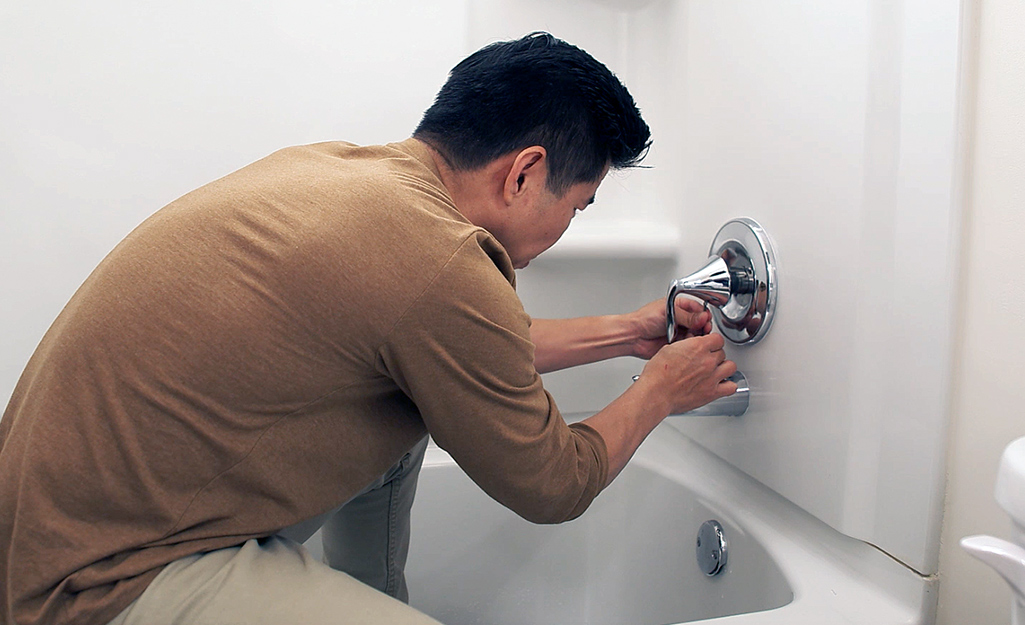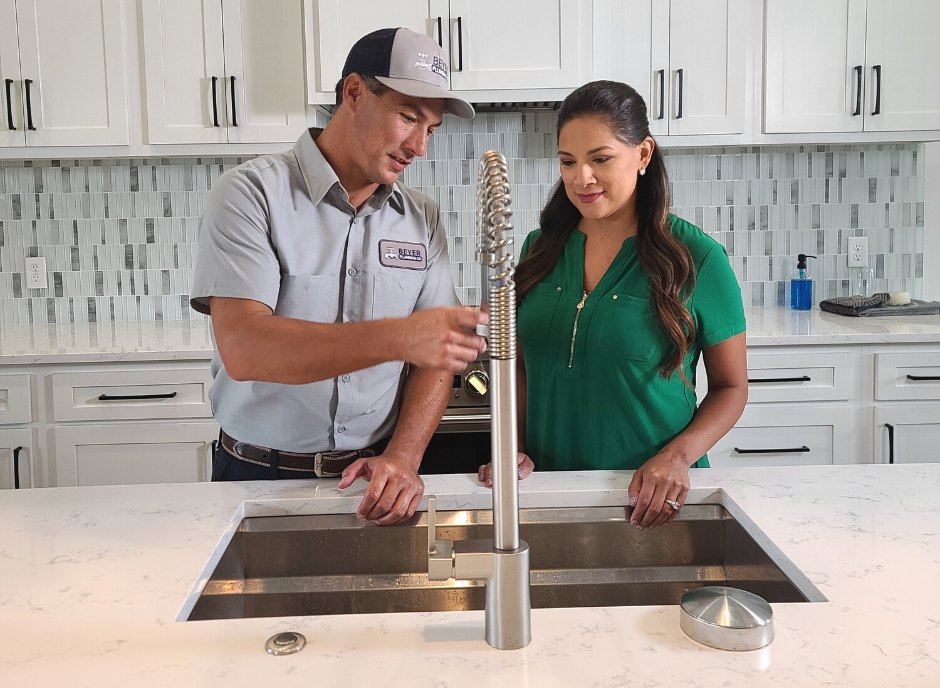The publisher is making a number of great annotation related to Leaky Faucets: Why They Happen & What to Do About Them overall in this great article followed below.

Dripping taps could seem like a small aggravation, however their influence goes beyond simply the aggravation of the noise. From drainage to incurring unnecessary monetary expenses and health threats, ignoring a trickling tap can cause numerous consequences. In this short article, we'll delve into why it's important to resolve this typical family problem promptly and successfully.
Wastefulness of Water
Ecological Influence
Dripping faucets add considerably to water wastage. According to the Environmental Protection Agency (EPA), a solitary tap dripping at one drip per secondly can throw away more than 3,000 gallons of water per year. This not only strains water sources yet likewise impacts ecosystems and wildlife dependent on them.
Financial Expenses
Enhanced Water Bills
Past the environmental influence, dripping taps can inflate water expenses significantly. The gathered wastefulness in time translates into greater utility expenses, which can have been avoided with timely fixings.
Prospective Home Damage
Furthermore, long term trickling can lead to harm to components and surface areas bordering the tap. Water buildup can cause discoloration, corrosion, and also architectural issues if left neglected, leading to extra repair service expenses.
Health and wellness Concerns
Mold And Mildew and Mildew Growth
The consistent visibility of moisture from a dripping tap creates an optimal atmosphere for mold and mildew development. These fungis not only compromise interior air top quality yet additionally position health dangers, specifically for people with respiratory system conditions or allergies.
Waterborne Conditions
Stationary water in dripping faucets can end up being a breeding ground for bacteria and various other virus, increasing the risk of waterborne illness. Pollutants such as Legionella germs prosper in stationary water, potentially bring about major diseases when consumed or breathed in.
DIY vs. Expert Repair work
Pros and Cons of DIY Fixing
While some may try to take care of a leaking faucet themselves, do it yourself repair services feature their own collection of challenges. Without correct expertise and devices, DIY attempts can intensify the concern or cause insufficient repair work, lengthening the issue.
Advantages of Hiring a Professional Plumber
Employing a specialist plumber ensures that the underlying source of the dripping tap is addressed effectively. Plumbing technicians possess the expertise and equipment to diagnose and fix faucet concerns efficiently, saving time and minimizing the danger of additional damages.
Step-by-Step Overview to Repairing a Dripping Tap
Devices Required
Before attempting to deal with a trickling tap, collect the required tools, consisting of a flexible wrench, screwdrivers, substitute parts (such as washing machines or cartridges), and plumber's tape.
Common Tap Issues and Their Solutions
Determine the type of tap and the particular issue creating the drip. Common issues consist of worn-out washing machines, corroded shutoff seats, or malfunctioning O-rings. Describe producer guidelines or on-line tutorials for detailed advice on repairs.
Safety nets
Regular Upkeep Tips
To stop leaking taps, carry out routine upkeep such as cleaning up aerators, checking for leakages, and replacing worn-out components immediately. In addition, consider installing water-saving devices or updating to a lot more efficient components.
Importance of Prompt Repairs
Addressing leaking faucets as quickly as they're noticed prevents further water waste and prospective damages, inevitably conserving both water and money in the future.
Effect On Residential Property Worth
Perception of Well-Maintained Residential Or Commercial Property
Maintaining a residential property in good condition, consisting of addressing maintenance problems like leaking faucets, enhances its regarded value and desirability amongst potential purchasers or tenants.
Impact on Resale Worth
Properties with well-maintained plumbing components, including taps, command greater resale worths in the realty market. Attending to dripping taps can contribute to a positive perception throughout building examinations and negotiations.
Ecological Obligation
Individual Payment to Conservation
Taking duty for dealing with trickling faucets straightens with wider efforts toward water conservation and ecological sustainability. Every person's actions collectively make a significant effect on preserving valuable resources.
Sustainable Living Practices
By prioritizing timely repair work and taking on water-saving routines, people contribute to lasting living methods that benefit both present and future generations.
Final thought
Dealing with a trickling tap exceeds mere ease; it's a necessary step towards saving water, lowering financial expenses, and guarding health and home. Whether via do it yourself repair work or expert aid, taking action to fix leaking faucets is a tiny yet impactful way to advertise responsible stewardship of resources and contribute to a much healthier, more sustainable future.
Why Are My Faucets Dripping (And Can I Fix it Myself)?
Causes of a Dripping or Leaking Faucet
Whether you’re hearing drops of water falling and hitting a sink, or noticing water ooze out from the base of the spout, you shouldn’t ignore a dripping or leaking faucet. And, the good news is, sometimes you can fix the problem yourself.
In this article, we’ll review a few common causes of dripping and leaky. We’ll also walk you through some basic ways to find the problem and handle it without calling anyone — and let you know when to call in a pro.
But, no matter what the cause, or whether you can handle it on your own, the sooner you address it, the better.
Each drip may be a tiny amount of water. But, they all add up quickly. According to the U.S. Geological Survey, one faucet losing one drop every 20 seconds — five a minute — wastes around a liter of water every day, and 173 gallons a year.
Add in more than one in your house, and it’s a lot of water to waste. So, we’ll help you get to the bottom of things quickly.
Four Reasons Your Faucet May Be Dripping
- Aerator is Damaged or Unseated
- Valve Seat is Corroded
- O Ring is Loose or Worn Out
- Part of the Assembly is Loose
Aerator is Damaged or Unseated
If you unscrew the end of your faucet, you’ll find the aerator. It’s the little stem piece with a screen on it that shuts off the water circulation.
If it’s damaged, or if it’s not sitting right, it will allow water to pass through.
Valve Seat is Corroded
Next is the valve seat, which is connected to the washer. If the washer wasn’t in place correctly, then it could have ground against the seat. Over time, this damages the valve seat.
The problem could also be corrosion: Over time, the part has worn out, and it’s now allowing water to pass through.
O Ring is Loose or Worn Out
Since the o ring is only a small rubber gasket, it’s a common reason why the faucet is dripping. You’ll find it at the base of the faucet, and it’s there to keep water from coming out where it’s not supposed to.
However, it’s common for the o ring to wear out over time. When it does, you’ll notice a drip.
Part of the Assembly is Loose
So far, we’ve looked at a few small, specific parts. But, the problem could be anywhere in the assembly if something’s out of place.
Even if a part isn’t damaged, over time, it may have become loose or dislodged. It could be the parts we mentioned, or the aerator at the tip of the faucet, the stem itself,
Can I Fix a Leaky Faucet Myself?
Depending on the problem, and how handy you are, there’s a chance you can fix a leaky faucet without calling a professional. But, you do run the risk of making the problem worse.
If it’s a small drip, you can certainly try a few troubleshooting tactics. We’ll walk you through them in a moment.
But, no matter what, your first step should be shutting off the water coming into the faucet. You should find a shutoff valve under the sink on the pipes leading to it. Turn each one clockwise until they close tightly.
Next, make sure you have the right tools for whatever you’re attempting. It’s tempting to make do with what you have. But, you need the right ones for a reason: You’re often dealing with small parts that can break if you handle them carelessly.
If you’re feeling confident, here are some places to start.
Items Near the Tip of the Faucet
A few of the parts we mentioned — particularly the valve seat and washer — are located at the tip of the faucet where the water comes out. They’re easy to access, making it a good place to start.
Check the O Ring
To check the o ring, you’ll need to take off the spout at the base. It’s easiest on kitchen sinks with long spouts, versus the smaller, bulkier base on most bathroom sinks.
Either way, this can be tricky, so do it carefully and don’t force anything. If it’s not coming right off, you’re much better off calling in a pro than possibly breaking something.
For a kitchen sink, there’s usually a nut or coupling assembly at the base of the spout. These often slide off easily without using any tools.
Once you’ve disassembled those parts, gently but forcefully twist off the spout.
Then, you can see the o rings. There should be two of the rubber gaskets on the base. If they look worn or damaged, replace them, and see if that solves the problem.

I found that blog entry on Water Dripping from Faucet: Why and How to Fix while doing a lookup on the internet. Loved our piece? Please share it. Help other people locate it. Thanks so much for taking the time to read it.
Comments on “Which It's Required to Deal with a Dripping Faucet”